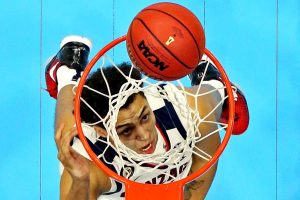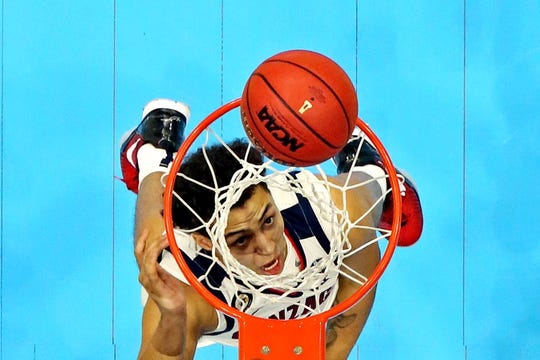Analysis: Gonzaga’s case for being one of the best non-champions in men’s Division I history

Gonzaga entered Monday night's national championship game against Baylor looking to become the first team in more than 45 years to go unbeaten. Instead, the Bears' 86-70 victory prevents the Bulldogs from securing a place in college basketball history.
"I never felt like we played with that weight all year," said Gonzaga coach Mark Few. "I always felt like we were the aggressor. We just ran into a team tonight where they were the aggressor, clearly. That put us back on our heels on both ends."
This coronavirus-influenced season did not include the long-awaited breakthrough at the end of the Bulldogs' surge to national prominence under Few, who has overseen the program's metamorphosis from obscure Cinderella to powerhouse.
While missing the finishing touch on the national championship, Gonzaga should still be celebrated as one of the best teams in men's NCAA Tournament history to not win it all, even if that's a compliment the Bulldogs would care to avoid.
For several reasons, Gonzaga easily ranks among the best non-champions. Here's how the Bulldogs' résumé stacks up:
Gonzaga almost went unbeaten
A few teams came close — 1991 UNLV and 2015 Kentucky lost in the Final Four — but not since Larry Bird-led Indiana State in 1979 had a team entered the championship game unbeaten since Indiana completed the last perfect season in 1976. For another year, the list of programs to go undefeated during the tournament era remains the Hoosiers, UCLA (four times), North Carolina and San Francisco. Perfection is so rare in sports, especially in men's basketball, that an unblemished record assures a team will forever be mentioned in the same breath as the greatest in the history of the sport.
And nearly did so during the modern tournament era
Here's why decades have passed without a team matching Indiana's achievement: Because it's hard! And it's even harder during the modern era of the men's tournament, which expanded to 64 teams in 1985 and grew to 68 teams in 2011. The Hoosiers' title came against a 32-team bracket. UCLA's back-to-back unbeaten campaigns in 1971-72 and 1972-73 came as part of a 25-team field. Perfect seasons from the Bruins in 1964 and 1966-67, the Tar Heels in 1956-57 and San Francisco in 1955-56 came with anywhere from 22 to 25 teams in the bracket.
MORE: Don't let Baylor's win detract from what Mark Few has done at Gonzaga
OPINION: Baylor coach Scott Drew gets last laugh
MOP: Baylor's Jared Butler named Most Outstanding Player of Final Four
Source: Read Full Article

